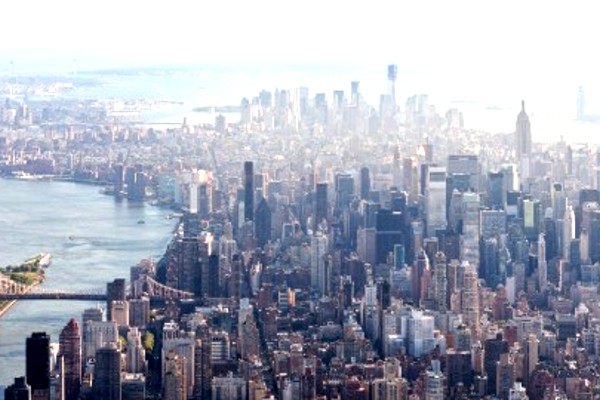 The Health Department commemorated today the 100-year anniversary of the East Harlem Neighborhood Health Action Center with the release of “100 Years of Neighborhood Health.”
The Health Department commemorated today the 100-year anniversary of the East Harlem Neighborhood Health Action Center with the release of “100 Years of Neighborhood Health.”
A video honoring the center’s legacy. Opened in 1921 as the East Harlem District Health Center, the 158 East 115th Street site has been an integral part of the surrounding community. A place-based public health approach – tailoring health and social services at the neighborhood level in response to a range of community needs – is still a core practice today.
The Health Department’s three Action Centers (East Harlem, Central Brooklyn and the South Bronx) aim to eliminate health inequities by addressing factors that lead to poor health outcomes due to racism, inequitable wealth distribution, and unequal access to community resources among others.
“Healthy neighborhoods create a healthy city, and for the past 100 years, our work in East and Central Harlem, North and Central Brooklyn, and the South Bronx has played a vital role in that mission,” said Health Commissioner Dr. Dave A. Chokshi. “We continue to build on that legacy by hosting educational workshops and offering connections to health care and social services for New Yorkers living in neighborhoods impacted by decades of disinvestment.”
In 1921, in the wake of World War I, the East Harlem District Health Center opened as a pilot to co-locate health services, social service agencies and community-based organizations to coordinate health and social services for the neighborhood at a time of disruption and crisis.
The original project united 22 health, nursing, and family services agencies, serving 112,000 people in the first two years.
Throughout the twentieth century and into the new millennium, these heath centers have continued to bring together evidence-based approaches to improve health.
Co-location of community-based resources, multi-disciplinary services, and development of referral systems have been identified as effective strategies to address social determinants of health, provide preventive services, and improve health outcomes.
These centers paved the way for the NYC Public Health Corps, which will expand the public health workforce and promote health equity for communities that were hit hardest by the COVID-19 pandemic.
“As a former Assistant Commissioner for the Brooklyn Health Action Center, it was our mission to leverage the Health Department’s resources to collaborate and co-design solutions to address longstanding health inequities in key neighborhoods,” said First Deputy Commissioner and Chief Equity Officer, Dr. Torian Easterling. “The vision of the Action Centers builds on the social and racial justice principles of the community health center movement and is a critical public health approach to advance health equity in NYC.”
“Community transformation starts locally, and I am honored to join with our partners and colleagues in celebrating a century of the Neighborhood Health Action Center model,” said Deputy Commissioner and Chief Medical Officer, Dr. Michelle Morse. To address health equity and racial justice, we must commit to the Action Center model in communities across NYC who have experienced disinvestment and inequitable health outcomes for generations.”
The commemoration event in early December featured long-time partners of the East Harlem site who shared reflections on 100 years of the Health Department’s investment in health and healing for Harlem residents.
Opening remarks were shared by New York State Acting Commissioner of Health, Dr. Mary T. Bassett, who previously served as New York City Commissioner of Health from 2014-2018 and a long-time advocate for the Action Centers.
The event also included spoken word reflections by Urban Word NYC artists and contemporary poet, writer, and activist Aja Monet.
In 2015 the Health Department renewed its commitment to the Neighborhood Health Action Centers and reinvested resources in the model in three priority neighborhoods: East Harlem; Tremont, Bronx; and Brownsville, Brooklyn.
The Action Centers provide a variety of services, including referrals to health, social services, other neighborhood resources; and community space for individuals and groups to organize and plan around community health.
Each of the Actions Centers also host a Family Wellness Suite with programs ranging from childbirth, breastfeeding, and reproductive health workshops to crib and car seat distribution.
Between 2016 and 2020, the three Action Centers saw more than 137,000 visitors combined.
Action Centers have served a vital role making connections to programs and services more efficient by providing a one-stop shop for community residents.
The Action Centers are part of a neighborhood strategy that co-locates health and social services, leverages a referral system to facilitate linkages across providers to meet residents’ needs, and amplifies community power to bring the lived experiences and input of marginalized groups to bare in affecting social change.
Become a Harlem Insider!
By submitting this form, you are consenting to receive marketing emails from: Harlem World Magazine, 2521 1/2 west 42nd street, Los Angeles, CA, 90008, https://www.harlemworldmagazine.com. You can revoke your consent to receive emails at any time by using the SafeUnsubscribe® link, found at the bottom of every email. Emails are serviced by Constant Contact








